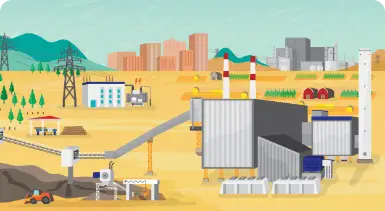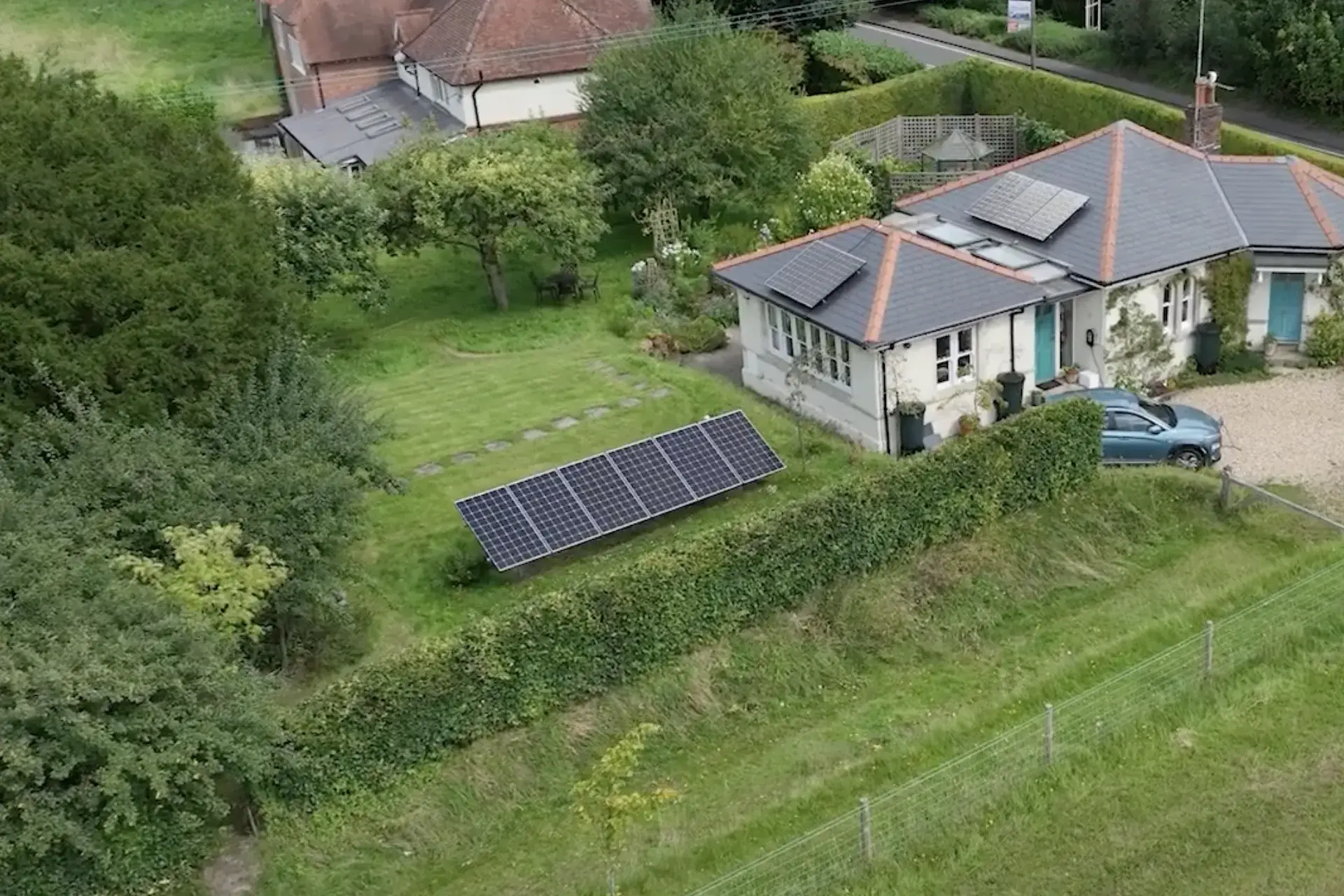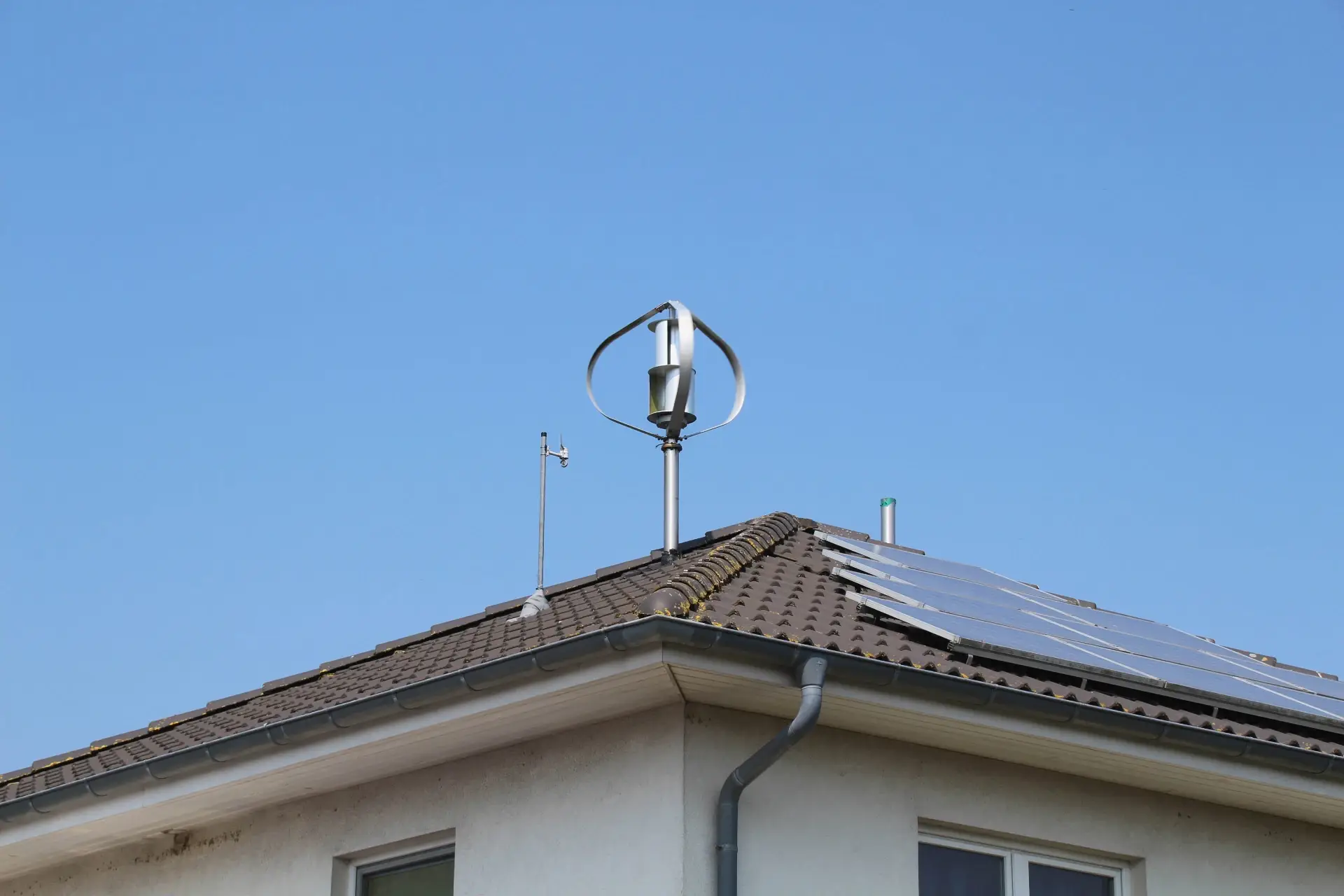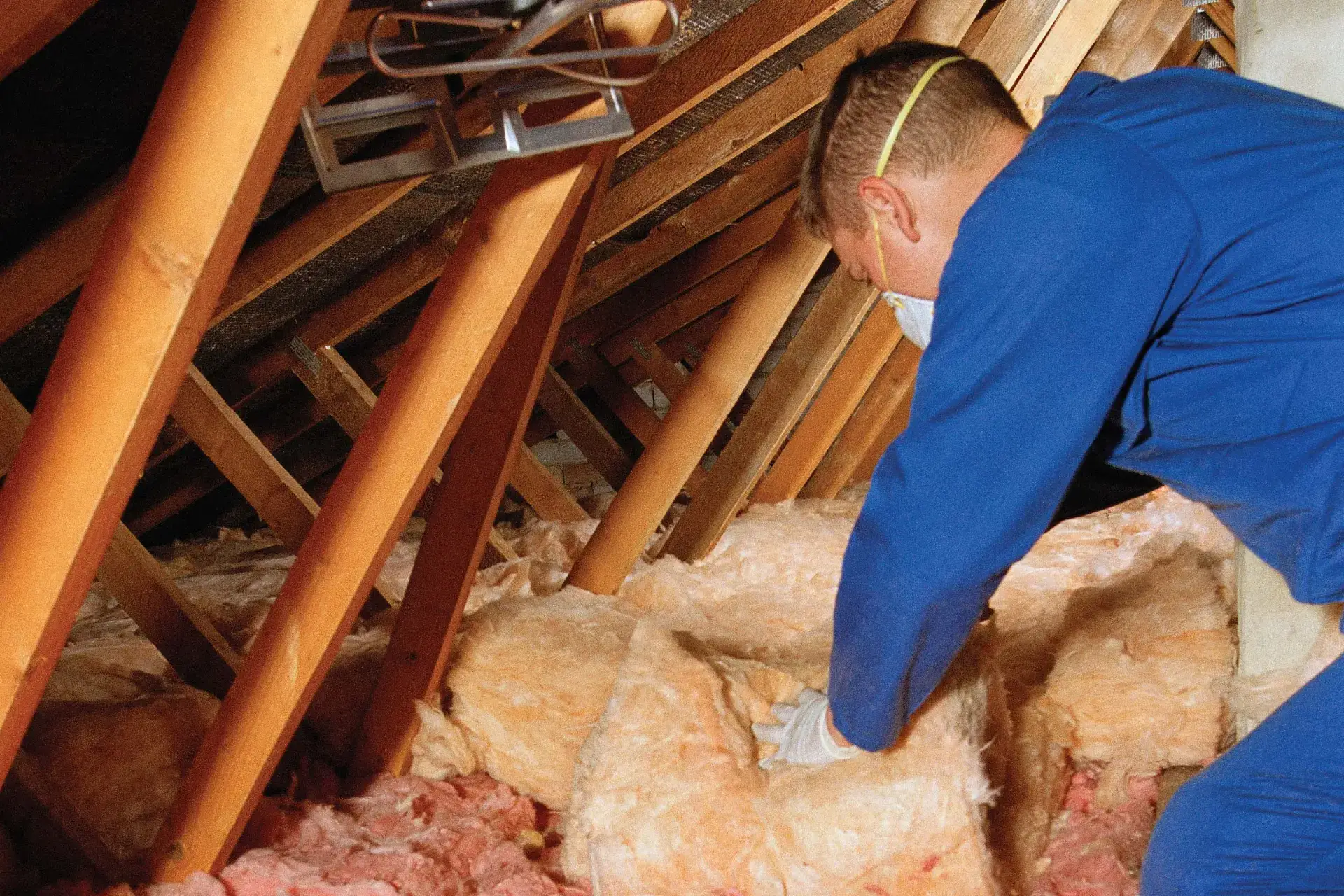Biomass is a renewable energy source, generated from burning wood, plants and other organic matter. Biomass boilers can replace oil or gas boilers to heat hot water and radiators (or under floor heating). In this article we’ll go through the advantages and disadvantages of biomass boilers in more detail – including costs, shape, size, fuel and servicing.
What is a Biomass Boiler?
A biomass boiler is a type of heating system that burns organic materials such as wood pellets, chips, or logs to generate heat.
Biomass boilers are often installed as a green alternative to traditional gas or oil-fired systems and offer an environmentally friendly solution by using renewable resources. Biomass boilers are used in homes, commercial buildings, and industrial facilities to provide central heating and, in some cases, electricity generation.
Biomass Heating
Biomass heating involves burning organic materials to produce heat for various purposes, such as heating water, providing space heating, or powering industrial systems.
Biomass fuels include wood, agricultural residues, and other plant-based materials. Unlike fossil fuels, biomass is renewable and, when sourced sustainably, considered carbon-neutral.
Biomass Boilers
Biomass boilers play a key role in biomass heating systems. They are designed to burn specific types of biomass fuel efficiently, providing warmth and hot water for homes and businesses. These boilers vary in size, fuel type, and automation levels.
Some boilers require manual loading of fuel, while others can automatically feed the biomass into the combustion chamber. Modern biomass boilers are highly efficient, often achieving over 90% energy efficiency when properly maintained.
Biomass boilers fuel types
It’s important to think through carefully the supply, storage and handling of fuel before you invest in a biomass boiler. There are generally some trade-offs between each fuel type, and they will be specific to your site
Wood pellets are made from compressed sawdust and wood shavings and other biomass products and are uniform in size and shape. They have higher energy content and so take up less storage space than logs or wood chips. Boiler manufacturers specify the size, shape and moisture content their products need to perform well. Wood pellet systems are the smallest, neatest and most like a mainstream boiler and require the least input from the user.
Log-fed boilers are more suitable for people with ready access to a supply of wood, and time to cut it to the right size. Logs must be manually fed into the boiler and the process is less automated, depending more on human input.
Woodchips vs pellets
Woodchips are cheaper and more abundant than pellets, but some woodchip boilers need woodchips of a very specific size and moisture content, so not all woodchips are suitable. They allow for more mechanisation than logs but are not as efficient as wood pellets and are really only suitable for larger or multiple properties due to the capital costs (which include the cost of providing dry storage and a system for mechanically feeding the woodchips into the boiler).
As part of the Clean Air Strategy, government has pledged that from spring 2021 all wood sold in units of less than 2m3 with a moisture content of more than 20% will be banned, in an attempt to encourage owners of stoves and open fires to move to ‘cleaner’ alternatives such as dried wood, which cause less pollution.
The Ready to Burn certification scheme will come into force in England from 1 May 2021 for most wood suppliers
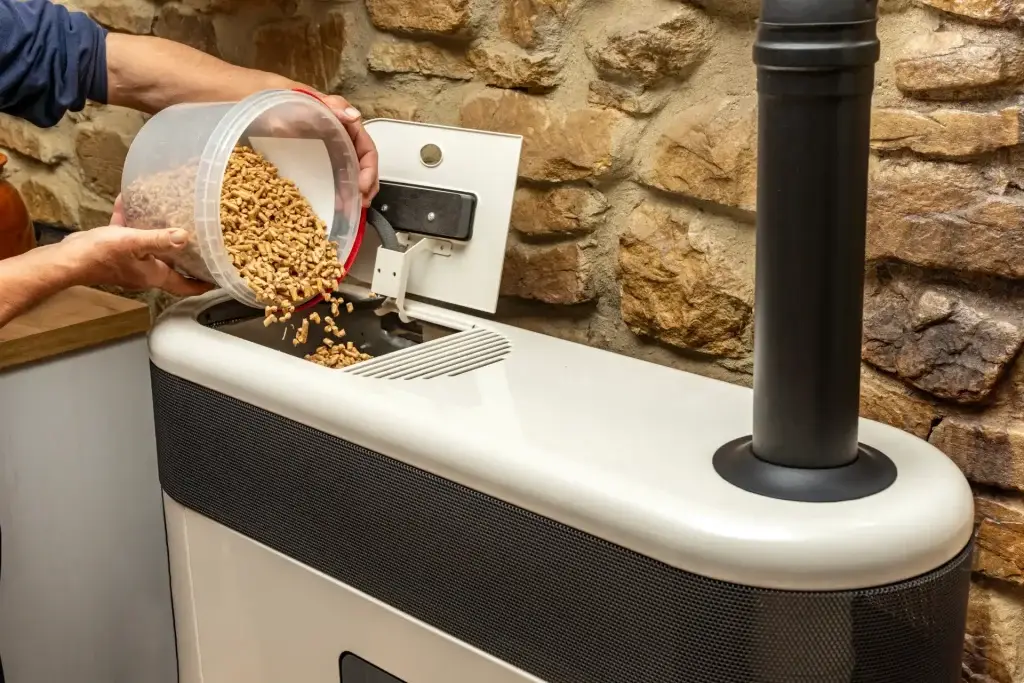
Biomass Boiler Cost
According to the Energy Saving Trust, to install an automatically fed pellet boiler in a typical home costs between £11,000 and £17,000.
Unlike other renewable technologies there is also an ongoing fuel cost with biomass heating.
Wood pellet costs will depend on the size and method of delivery. If you have room for a large fuel store that will accept several tonnes of pellets at a time and be delivered in bulk you can generally reduce the cost, compared to bagged pellets.
Logs are cheaper and if you can buy them unseasoned and store them somewhere where to season you can save money.
The cost of installing and operating a biomass boiler can vary significantly based on factors like boiler size, fuel type, and the complexity of installation.
While the initial investment is typically higher than that of traditional boilers, biomass boilers offer long-term savings through lower fuel costs and government incentives.
Biomass Boiler Installers Cost
The cost of hiring professionals to install a biomass boiler varies depending on the scope of the project and your location. In the UK, for instance, installation fees for a domestic biomass boiler can range from £5,000 to £12,000.
Commercial biomass boilers
Commercial installations may be even more expensive, especially if the project requires retrofitting an existing building. However, in many countries, government schemes provide financial incentives that offset some of these upfront costs.
Biomass Boiler Servicing Cost
Like any heating system, a biomass boiler requires regular servicing to ensure efficiency and longevity. Annual maintenance typically includes cleaning the combustion chamber, checking safety controls, and ensuring that the fuel delivery system is functioning correctly.
Service costs can range from £150 to £300 per year, depending on the size and complexity of the boiler system. Regular maintenance is crucial for optimizing the boiler’s performance and extending its operational lifespan.
What is Biomass Heating?
Biomass heating refers to the process of generating heat by burning organic materials such as wood, straw, or other biological matter. This heat can then be used for space heating, water heating, or even electricity generation in some systems.
Biomass heating is considered a sustainable alternative to fossil fuel-based systems because it relies on renewable organic materials. This type of heating is commonly used in both residential and commercial settings, providing a sustainable and low-carbon solution to heating needs.
Biomass Heating System
A biomass heating system generally consists of a biomass boiler, a fuel storage system, and heat distribution components like radiators or underfloor heating.
Biomass boilers are typically larger than conventional gas or oil boilers because they need to store and burn bulky fuel such as wood chips or pellets. Some systems are designed to be fully automated, with fuel being fed into the boiler as needed, while others require manual input.
Biomass Secondary Heating
In some households, a biomass heating system is used as a secondary heating option, supplementing an existing oil, gas, or electric system.
This setup allows homeowners to benefit from the cost savings and environmental benefits of biomass without fully replacing their current heating system.
Secondary biomass heating can take the form of standalone biomass stoves or smaller boilers that provide heat to specific areas or functions, like heating a single room or heating water.
Biomass Boilers UK: popularity and energy solutions
Biomass boilers have gained popularity in the UK due to growing awareness of climate change and the need for renewable energy solutions.
The UK government offers incentives, such as the Renewable Heat Incentive (RHI), which makes biomass boilers more affordable by providing financial support for renewable heating technologies. However, the UK’s climate and building types make choosing the right biomass boiler and fuel type essential for effective use.
The availability of fuel like wood pellets or logs in your region can also influence the practicality of installing a biomass boiler.
How Does Biomass Energy Work?
Biomass energy is produced by burning organic materials to release stored chemical energy in the form of heat.
In a biomass boiler, the fuel is burned in a combustion chamber, and the resulting heat is transferred to water or air, which is then circulated throughout a building or used to generate electricity.
Biomass energy is considered renewable because the organic materials used as fuel can be replenished through natural processes like planting more trees.
Advantages of Biomass Energy
- Renewable and Sustainable: Biomass energy uses organic materials that can be replenished, making it a sustainable alternative to fossil fuels.
- Carbon Neutral: When sourced sustainably, biomass fuels are considered carbon-neutral because the CO2 released during combustion is offset by the CO2 absorbed by plants during their growth.
- Cost-Effective: Biomass fuels like wood pellets are often cheaper than fossil fuels, especially in regions where biomass is abundant.
- Energy Security: Biomass reduces reliance on imported fossil fuels, offering a degree of energy independence.
- Government Incentives: In many countries, biomass energy systems are eligible for financial incentives, making them more affordable.
Biomass Disadvantages
- High Initial Costs: The upfront cost of installing a biomass boiler system is often higher than traditional heating systems.
- Storage Space: Biomass fuels like wood pellets or logs require significant storage space, which can be a drawback for small homes or businesses.
- Fuel Supply Management: Biomass boilers often require regular refueling, either manually or automatically, and managing a reliable fuel supply can be challenging.
- Air Quality Concerns: Although biomass is cleaner than fossil fuels, burning organic matter still releases particulates and other pollutants, which may impact air quality.
- Maintenance: Biomass boilers require more maintenance than traditional systems, including regular cleaning and ash removal.
Is Biomass Renewable?
Yes, biomass is considered a renewable energy source because it derives from organic materials that can be replenished naturally.
The key to its sustainability lies in the source of the biomass fuel. For example, wood chips and pellets are renewable if they come from sustainably managed forests where new trees are planted to replace those harvested. Agricultural residues and other plant-based fuels are also considered renewable as they can be continuously produced.
Biomass Boiler for Home: Are They Worth It?
For homeowners, a biomass boiler can be an excellent investment, particularly for those in rural areas where access to gas grids is limited.
Biomass boilers can significantly reduce heating costs, especially with the availability of government grants and incentives. However, the practicality depends on various factors, such as the availability of fuel, storage space, and the homeowner’s ability to manage and maintain the system.
Biomass boilers are generally more suitable for people not connected to mains gas.
The boiler will need a flue designed for wood fuel (existing chimneys can be lined).
Biomass boilers shape and size
You will also need space. Biomass boilers tend to be larger than the gas or oil equivalent. And you need about 6-7 cubic metres of space near where the boiler is sited to store the fuel (for an average size house). Biomass boilers can burn logs, wood chips or pellets.
If you’ve got space for a large fuel store you can reduce costs by having fuel delivered in bulk. Ideally the fuel storage area will be under cover, as it is important to keep fuel dry. High moisture content in the fuel will reduce the efficiency with which it burns (and increase the risk of a chimney fire and undesirable emissions) and if wood pellets get wet, they turn to unusable mush.
Your property also needs to be accessible for a fuel delivery lorry.
And it is important to check that the boiler will work with your existing plumbing.
Domestic Biomass Boiler
A domestic biomass boiler is typically smaller than its commercial counterparts, designed to heat homes and small properties. These systems are often installed in rural or off-grid homes as an alternative to oil or LPG systems.
Domestic biomass boilers are available in different sizes and configurations, including manual feed systems for logs and fully automated pellet-fed boilers.
Homeowners need to consider fuel availability, maintenance requirements, and long-term cost savings when deciding whether a domestic biomass boiler is suitable for their needs.
Biomass boilers rules and regulations
In this section we’ll go through the rules and regulations and if the biomass boilers require planning permission in the UK.
Biomass boiler planning permission
Biomass systems are deemed permitted developments unless the flue exceeds the height of the roof by one metre or more. You will also need to make sure that your installation meets the standards of the relevant building regulations on clean air, ventilation, noise and safety.
Contact your local planning department for all installations to check conditions will be met.
How Do Biomass Boilers Work?
Biomass boilers operate by burning organic fuel, such as wood pellets or chips, to generate heat. The fuel is fed into a combustion chamber, where it is burned to release energy. The heat produced is transferred to water or air, which is then distributed throughout the home via radiators or underfloor heating systems.
Depending on the type of boiler, the fuel can be fed manually or automatically. Some advanced systems even have self-cleaning features to reduce maintenance requirements. Biomass boilers also produce ash as a byproduct, which must be regularly removed. However, this ash can often be reused as a natural fertilizer.
In conclusion, biomass boilers offer an eco-friendly and cost-effective heating solution, although they come with considerations like initial costs, maintenance, and fuel management.
Is a Biomass Boiler Worth It?
Whether a biomass boiler is worth the investment depends on several factors, including your heating needs, location, and personal circumstances. Here are the key considerations:
1. Environmental Impact
If reducing your carbon footprint is a priority, biomass boilers are worth considering. They produce lower carbon emissions than fossil fuel-based systems, especially when the fuel is sourced from sustainable sources. Biomass is also considered carbon-neutral because the CO2 released during combustion is offset by the CO2 absorbed during the plant’s growth phase.
2. Fuel Costs
Biomass fuel, such as wood pellets or logs, is often more affordable than oil, LPG, or electricity in many regions.
If you have access to a reliable and affordable source of biomass fuel, the long-term running costs can be lower than those of conventional heating systems. However, fuel availability can vary by region, so this should be carefully researched.
3. Upfront Costs
One of the biggest downsides of biomass boilers is their higher upfront cost compared to conventional systems. However, the long-term savings on fuel and government incentives may offset the initial expense.
4. Space and Maintenance
Biomass boilers should be kept clean and swept regularly to remove ash. This is likely to be weekly and never more than once a day, If the ash is not cleaned out regularly, it will build up and adversely affect combustion conditions, which can lead to boiler failure and shutdown.
Some boilers have a mechanism for compressing the ash, which reduces the number of times the ash bin needs to be emptied. Others might have self-cleaning systems. If there is no automatic ash cleaning mechanism in place, the boiler will need to be shut down so that this can be done by hand.
You should also have an annual maintenance check carried out on your boiler, and the chimney and flue pipe must be swept regularly to remove all soot deposits and prevent blockage. HETAS recommend that this “should be done at least twice a year;’ preferably before the heating season and at the end of the heating season.
Logs should always be seasoned (air-dried) for at least a year before being burned. Burning wet wood increases the amount of soot in a chimney and with it the chance of a chimney fire.
5. Suitability for Off-Grid Homes
Biomass boilers are especially attractive for homes not connected to the gas grid, where alternatives like oil, LPG, or electric heating are commonly used.
In rural or off-grid homes, where fuel costs can be high, a biomass boiler can offer significant savings.
Biomass boilers: Renewable Heat Incentive
Biomass boilers are eligible for the Renewable Heat Incentive (RHI).
Your system must provide some space heating, must meet air quality standards, and you must buy fuel from a supplier on the Biomass Suppliers List found here.
Conclusion: Is it Worth It?
A biomass boiler can be a smart investment if you’re looking for a sustainable, eco-friendly heating system, particularly if you’re eligible for government incentives and have access to affordable biomass fuel.
However, the high upfront costs, storage requirements, and regular maintenance may make it less suitable for smaller homes or those with limited space. For rural or off-grid homeowners, especially in regions with government support, a biomass boiler could be an excellent long-term heating solution.

